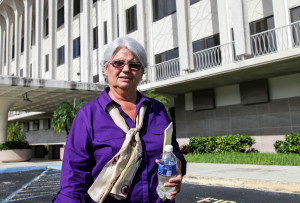Souad Mekhennet
Washington Post
April 10, 2020
Extreme right-wing organizations and radical Islamist groups are seizing on the turmoil and panic created by the coronavirus pandemic to advance their violent agendas, often using similar tactics and the same messaging apps, security officials and experts say.
In recent weeks, racist and anti-Semitic organizations, as well as the Islamic State, al-Qaeda and radical Shiite networks, have ramped up recruitment efforts, encouraged attacks and advanced hate-filled conspiracy theories about the virus.
Far-right extremist groups have called the pandemic a hoax and floated the falsehood that the crisis is being orchestrated by Jews or China. In the United States, they are exploiting the state of anxiety, including massive job losses, by scapegoating Jews, blacks, immigrants, politicians and law enforcement, according to security officials.
Radical Islamist groups are similarly using the pandemic to push their extremist credo, calling the virus an act of God against the enemies of Islam. They are also trying to stoke violent opposition to leaders in the Middle East, describing those who have discouraged religious and other large gatherings as defilers of the faith.
Security officials warn that extremist groups may become emboldened during a time when governments and authorities are focused on the sweeping changes to societies and economies brought on by the crisis.
“The online messages of right-wing or jihadist terrorist organizations about covid-19 to incite hate and the call for attacks are finding a receptive audience, and we cannot ignore the possible threat this might cause,” said a European intelligence official, who like other officials spoke on the condition of anonymity because they were not authorized to speak publicly.
Experts say Muslim extremist groups and far-right organizations are using similar tactics, as well as many of the same online platforms.
“Practically speaking, these groups’ directives largely remain the same: continue attacking the enemy,” said Rita Katz, executive director of the SITE Intelligence Group, a private firm that tracks online extremist activity. “The far right has gone much further in directly exploiting the covid-19 pandemic.”
Of particular concern, security officials say, are the messages encouraging people to intentionally spread covid-19 to create mass disorder.
One recent online extreme-right post listed chemical formulas for making toxic gases. Others have called for spreading the virus to Jews and black children, or encouraged sabotaging infrastructure to start race riots.
“In our research, we have found online chatter in which participants state that they are infected and seek to become biological weapons,” said Steven Stalinsky, executive director of the Middle East Media Research Institute (MEMRI). “Sites for spreading infection are discussed, among them supermarkets, hospitals and power stations. Also discussed is visiting synagogues and coughing in the faces of rabbis.”
In an editorial in an online magazine last month, the Islamic State urged “lone-wolf” attacks to capitalize on the paralysis and fear.
MEMRI and SITE found that Shiite groups — including Kataib Hezbollah in Iraq and the Houthis in Yemen — and their supporters on social media platforms have accused the U.S. government of deploying covid-19 as a bioweapon.
Experts and security officials say they are concerned about the swell of calls from extremists to strike at a time when they believe they could get away with terrorist acts and not be detected.
On March 24, a man who authorities say was planning to bomb a hospital where covid-19 patients were being treated was killed during a shootout with FBI agents in Belton, Mo. Timothy R. Wilson, 36, who had been active on right-wing extremist online groups, intended to use an explosive-laden vehicle in the attack, officials said.
U.S. security officials say they have noticed an uptick in threats against targets in New York and surrounding areas — which lead the country in covid-19 infections and deaths.
Last month, the FBI told police agencies in New York that white supremacists intended to spray Jews and police officers with virus-infected bodily fluids.
On March 21, the New Jersey Office of Homeland Security and Preparedness warned that a neo-Nazi media group had encouraged supporters “to incite panic while people are practicing social isolation during the COVID-19 outbreak, which includes discharging firearms in cities and putting bullet-sized holes into car windows.”
The fact that people are under quarantine makes them safer from attacks, said Mitchell D. Silber, executive director the Community Security Initiative, a program created to enhance the security of Jews in New York City.
“I am concerned about the day after, when people start to return back to the real world,” he said.
The Department of Homeland Security this week urged religious leaders to keep security in mind when mass gatherings halted by the
coronavirus begin resuming at houses of worship. While saying there were no imminent threats, the department highlighted stress fueled by the pandemic and a surge in online hate speech.
In a letter sent to the faith-based community on Wednesday, the department noted that religious leaders who start to welcome congregants back should “also review your security plans and ensure procedures are in place to protect your facilities and visitors.”
“Although there are no imminent or credible threats at this time, there has been an increase in online hate speech intended to encourage violence or use the ongoing situation as an excuse to spread hatred,” Brian Harrell, the department’s assistant director for infrastructure security, wrote in the letter, a copy of which was reviewed by The Washington Post.
“Additionally, stressors caused by the pandemic may contribute to an individual’s decision to commit an attack or influence their target of choice,” he added. “Again, we have no information to suggest such attacks are imminent or even likely, instead we are looking to provide you with useful information for planning for restoration of normal operations.”
The message was sent ahead of major holidays taking place over the coming weeks. Passover began Wednesday, Easter is Sunday and Ramadan starts the following week.
Katz, of the SITE Intelligence Group, said the pandemic should alter the way the world looks at terrorist threats.
“Ultimately, we need to start thinking of terrorism in these new contexts: public health, disinformation, etc. While some of these threats may have seemed far-fetched a few months ago, we’re now learning every day what happens when governments don’t prepare for the worst.”
Mark Berman contributed to this report.
https://www.washingtonpost.com/national-security/far-right-wing-and-radical-islamist-groups-are-exploiting-coronavirus-turmoil/2020/04/10/0ae0494e-79c7-11ea-9bee-c5bf9d2e3288_story.html








